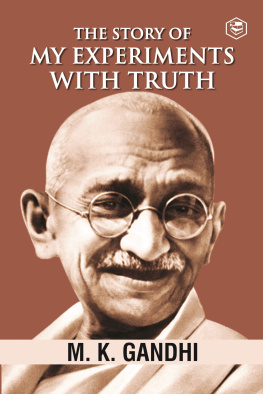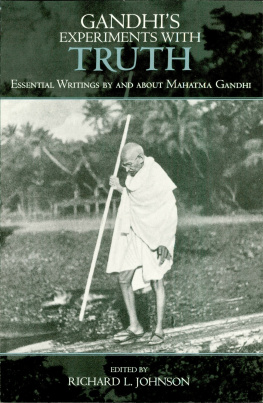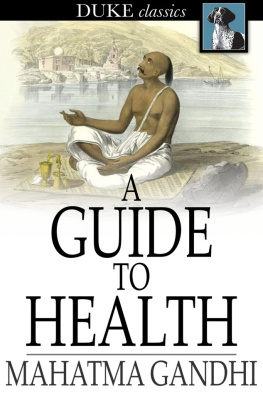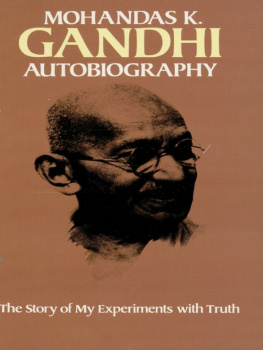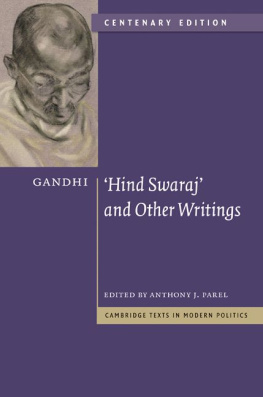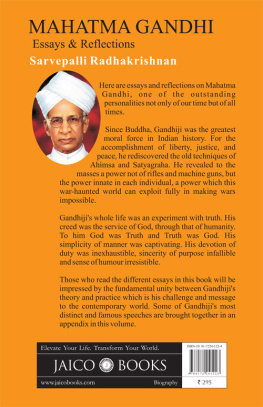This edition is published by BORODINO BOOKS www.pp-publishing.com
To join our mailing list for new titles or for issues with our books borodinobooks@gmail.com
Or on Facebook
Text originally published in 1958 under the same title.
Borodino Books 2017, all rights reserved. No part of this publication may be reproduced, stored in a retrieval system or transmitted by any means, electrical, mechanical or otherwise without the written permission of the copyright holder.
Publishers Note
Although in most cases we have retained the Authors original spelling and grammar to authentically reproduce the work of the Author and the original intent of such material, some additional notes and clarifications have been added for the modern readers benefit.
We have also made every effort to include all maps and illustrations of the original edition the limitations of formatting do not allow of including larger maps, we will upload as many of these maps as possible.
ALL MEN ARE BROTHERS
LIFE AND THOUGHTS OF MAHATMA GANDHI
AS TOLD IN HIS OWN WORDS
by
MAHATMA GHANDI
Compiled and Edited by
KRISHNA KRIPALANI
Introduction by
SARVEPALLI RADHAKRISHNAN
TABLE OF CONTENTS
Contents
TABLE OF CONTENTS
It is not that I am incapable of anger, but I succeed on almost all occasions to keep my feelings under control. Whatever may be the result, there is always in me conscious struggle for following the law of nonviolence deliberately and ceaselessly. Such a struggle leaves one stronger for it. The more I work at this law, the more I feel the delight in my life, the delight in the scheme of the universe. It gives me a peace and a meaning of the mysteries of nature that I have no power to describe.Gandhi
For those who want their Gandhi without tears, there is no better book than this....T. K. Mahadevan, Gandhi Peace Foundation
INTRODUCTION
A great teacher appears once in a while. Several centuries may pass by without the advent of such a one. That by which he is known is his life. He first lives and then tells others how they may live likewise. Such a teacher was Gandhi. These Selections from his speeches and writings compiled with great care and discrimination by Sri Krishna Kripalani will give the reader some idea of the workings of Gandhis mind, the growth of his thoughts and the practical techniques which he adopted.
Gandhis life was rooted in Indias religious tradition with its emphasis on a passionate search for truth, a profound reverence for life, the ideal of nonattachment and the readiness to sacrifice all for the knowledge of God. He lived his whole life in the perpetual quest of truth: I live and move and have my being in the pursuit of this goal.
A life which has no roots, which is lacking in depth of background is a superficial one. There are some who assume that when we see what is right we will do it. It is not so. Even when we know what is right it does not follow that we will choose and do right. We are overborne by powerful impulses and do wrong and betray the light in us. In our present state we are, according to the Hindu doctrine, only partly human; the lower part of us is still animal; only the conquest of our lower instincts by love can slay the animal in us. It is by a process of trial and error, self-search and austere discipline that the human being moves step by painful step along the road to fulfilment.
Gandhis religion was a rational and ethical one. He would not accept any belief which did not appeal to his reason or any injunction which did not commend to his conscience.
If we believe in God, not merely with our intellect but with our whole being, we will love all mankind without any distinction of race or class, nation or religion. We will work for the unity of mankind. All my actions have their rise in my inalienable love of mankind. I have known no distinction between relatives and strangers, countrymen and foreigners, white and coloured, Hindus and Indians of other faiths whether Mussulmans, Parsees, Christians or Jews. I may say that my heart has been incapable of making any such distinctions. By a long process of prayerful discipline I have ceased for over forty years to hate anybody. All men are brothers and no human being should be a stranger to another. The welfare of all, sarvodaya , should be our aim. God is the common bond that unites all human beings. To break this bond even with our greatest enemy is to tear God himself to pieces. There is humanity even in the most wicked. {1}
This view leads naturally to the adoption of nonviolence as the best means for solving all problems, national and international. Gandhi affirmed that he was not a visionary but a practical idealist. Nonviolence is meant not merely for saints and sages but for the common people also. Nonviolence is the law of our species, as violence is the law of the brute. The spirit lies dormant in the brute and he knows no law but that of physical might. The dignity of man requires obedience to a higher lawto the strength of the spirit.
Gandhi was the first in human history to extend the principle of nonviolence from the individual to the social and political plane. He entered politics for the purpose of experimenting with nonviolence and establishing its validity.
Some friends have told me that truth and nonviolence have no place in politics and worldly affairs. I do not agree. I have no use for them as a means of individual salvation. Their introduction and application in everyday life has been my experiment all along. For me, politics bereft of religion are absolute dirt, ever to be shunned. Politics concerns nations and that which concerns the welfare of nations must be one of the concerns of a man who is religiously inclined, in other words, a seeker after God and Truth. For me God and Truth are convertible terms, and if any one told me that God was a God of untruth or a God of torture I would decline to worship Him. Therefore, in politics also we have to establish the Kingdom of Heaven.
In the struggle for Indias independence, he insisted that we should adopt civilized methods of nonviolence and suffering. His stand for the freedom of India was not based on any hatred for Britain. We must hate the sin but not the sinner. For me patriotism is the same as humanity. I am patriotic because I am human and humane. I will not hurt England or Germany to serve India. He believed that he rendered a service to the British in helping them to do the right thing by India. The result was not only the liberation of the Indian people but an increase in the moral resources of mankind.
In the present nuclear context, if we wish to save the world, we should adopt the principles of nonviolence. Gandhi said: I did not move a muscle, when I first heard that an atom bomb had wiped out Hiroshima. On the contrary I said to myself: Unless now the world adopts nonviolence, it will spell certain suicide for mankind. In any future conflict we cannot be certain that neither side will deliberately use nuclear weapons. We have the power to destroy in one blinding flash all that we have carefully built up across the centuries by our endeavour and sacrifice. By a campaign of propaganda we condition mens minds for nuclear warfare. Provocative remarks fly about freely. We use aggression even in words; harsh judgements, ill will, anger, are all insidious forms of violence.


